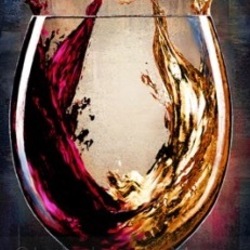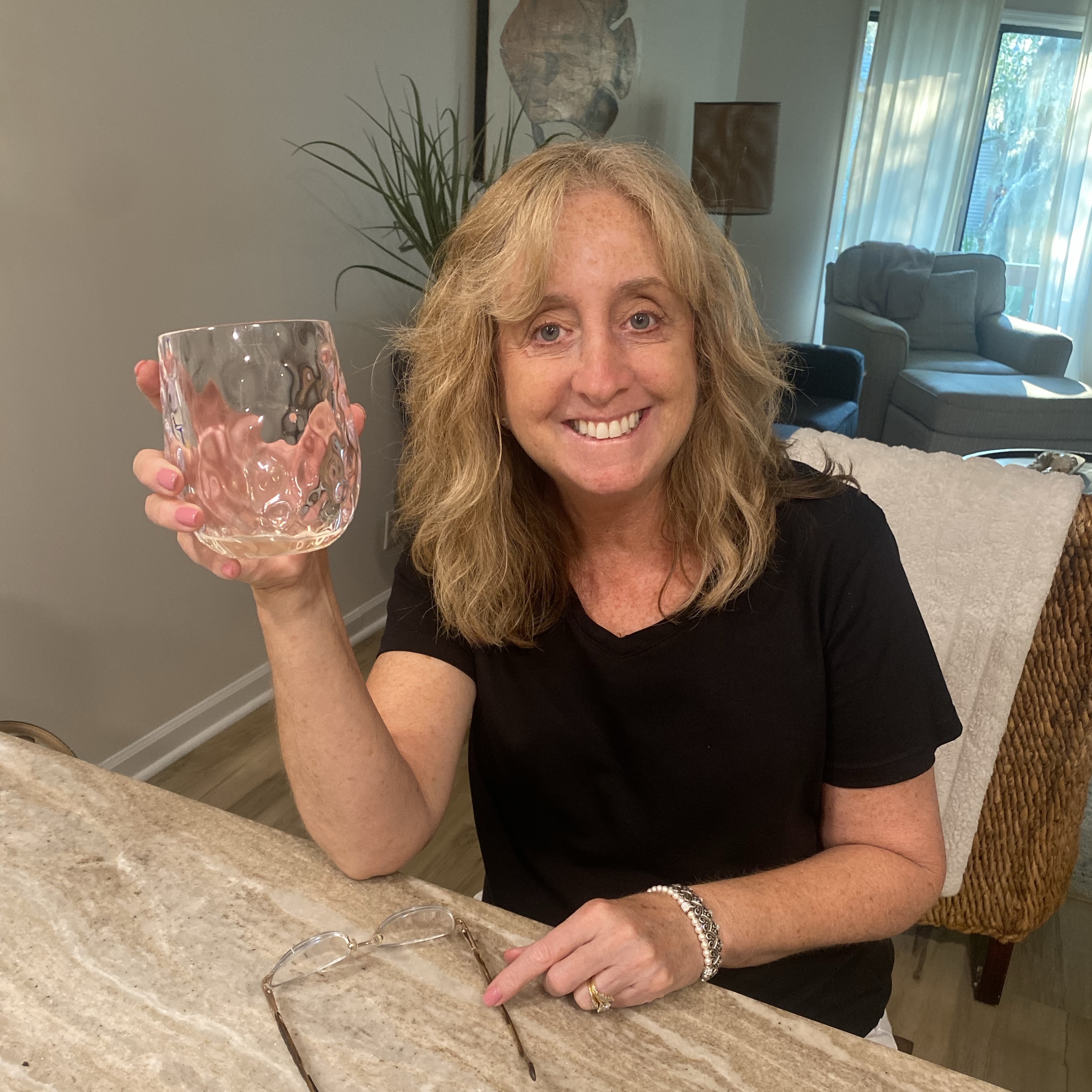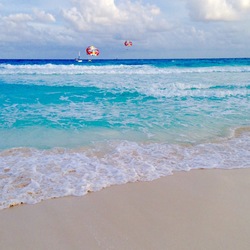Grape Vine Springs Winery
Ridge Vineyards
Triangle Geyserville Vineyard Old Vines Carignane 2011
This wine was a knockout! Full bodied, great nose and fruit and an earthy feel. Best Carignane I’ve had. It doesn’t hurt that it’s from a historic old vine block at Lytton Springs. — 7 years ago
Cédric Bouchard
Roses de Jeanne La Bolorée Brut Blanc de Blancs Champagne 2009
Cédric Bouchard makes tiny quantities of single vineyard, single vintage, single grape champagnes in the Côte des Bar. La Bolorée is made from old vine Pinot Blanc planted in 1960. It offers aromas of pear, lemon, licorice, and herbs. On the palate there is a suggestion of crushed gravel and the ripeness of the ‘09 vintage nicely balances the fantastic freshness and acidity. 12.5% ABV. Disgorged April 2013. $145. — 7 years ago
Bodegas Luis Cañas
Hiru 3 Racimos Rioja Tempranillo Graciano Blend 2010
The top of the line. Each vine only produces one to three grape bunches. It was Big, dark, chewy. Heaven. — 8 years ago
Domaine Philippe Tessier
Les Sables Cour-Cheverny Romorantin 2013
Love these Tessier Cour-Cheverny blancs. This one is from a single site with an average vine age of 30 years planted on limestone bedrock with upper layers of silica and clay. Romorantin is such a curious, interesting grape. Simultaneously rich yet also cutting and angular. Always kinda gives me Chenin-y vibes but it’s still so different even from that. This pours a medium (-)/medium bright gold hue. Moderate concentration of aromatics of Granny Smith apple juice, wet rocks, preserved lemon, a slight honeyed aspect, and a floral spice that I’m having real trouble placing specifically but it’s quite nice. On the palate, there’s both Granny Smith apple juice as well as ripe intact Granny Smith apples, a more prominent wet stone minerality, preserved lemon, beeswax, and pickled ginger. HIGH acid, dry, medium (-) body with a slightly oily texture, and medium (-)/medium alcohol. On the palate it feels like there’s possibly the tiniest bit of phenolic action going on but it’s incredibly subtle. Solid stuff and begging for some oysters or perhaps a bright shrimp-based dish. Also had it at our wedding earlier this year so it feels nostalgic to enjoy another bottle! — 8 years ago


Alfredo Maestro (Bodegas y Viñedos Maestro Tejero)
El Marciano Grenache 2013
El Marciano - Garnacha grape. Label - Elon Musk on Mars. Funky nose: sulfur and sauerkraut; blackberries afterwards. Great experience - very unusual vine. — 9 years ago
Ghost Clones
Oles Vineyard Petite Sirah 2013
Gardienne des Vignes sources Zinfandel and Petite Sirah grapes from family-owned vineyards in Napa Valley. This 100% Petite Sirah comes from 20-years old bush vines in the Oles vineyard in St. Helena. Owner Russ Oles selected cuttings from extremely old vine plantings to plant his vineyard. Hence the name "Ghost Clones". Dark red. Very attractive nose with blackberries, flowers and spices, slightly Vintage Port-like. Amazingly complex and elegant for this grape variety. Warm and full-bodied with layers of black fruit and a lovely acidity, making the high alcohol perfectly integrated. Long finish. A tremendous effort for Petite Sirah. 2013 vintage, abv 15,6%, 112 cases produced. — 9 years ago
Clendenen Family Vineyards
The Pip Santa Maria Valley Nebbiolo 2014
#Nebbiolo is a surprisingly rare grape. Even in its native Piedmont, it accounts for only 8% of vineyard land. There are fewer than 100 hectares planted in the United States. 🕵️♂️🍇
Over 80% of prewar Italian immigrants came from Sicily and Southern Italy. Piedmont was the wealthiest and most politically dominant region. But if fortunes were reversed, could Nebbiolo have taken Primitivo/Zinfandel’s place as a grape relatively uncommon on the boot but dominant in California? 🤔🇮🇹🇺🇸
Probably not. The Nebbiolo vine is *not* for beginners. It flowers early and ripens late, making it susceptible to both spring and autumn frosts. It loves the occasional fog bath (some say the name is derived from ‘nebbia’, Italian for fog ☁️☁️☁️) but is prone to the mildew that may result from such humid conditions. Its fussiness would make Pinot Noir blush: it demands southwesterly exposure, a proper gradient, constant sun above, and fog licking at its toes. #diva
Sound anything like California’s Central Coast? 🌅
In the Santa Maria Valley, where the East-West Transverse Range bends back into the North-South Coastal Range, it’s possible. Vineyard selection still requires extreme discretion - an eye like @JimClendenen’s, perhaps.
Jim began the Nebbiolo program at the legendary #BienNacido vineyard in 1994. Production is small, but if you track down his “The Pip” Nebbiolo, it will only run you about $30. You’ll believe anything is possible when you have real California Nebbiolo of this quality come wafting out of the glass at you! 🙌🙌
🏞.“The Pip” is named after Jim’s old cellar dog Pip, a border collie. So it only seemed right to include one of our own pips! 🐈 — 6 years ago
Seavey Vineyard
Estate Grown Cabernet Sauvignon 2013
The nose reveals; dark currants, blackberries, heavy black plum, black raspberries, dark cherries and some blueberries. Black tea, expresso roast, anise, crushed dry rocks, big vanilla, clove, a little nutmeg, dry underbrush, sweet tarry notes, leather, woody notes with dark fresh & withering flower bouquet.
The body is big and lush. The tannins are big, meaty and tarry. Very dark currants. Blackberries, heavy black plum, black raspberries, dark cherries and some blueberries & strawberries as they open up. Black tea, expresso roast, steeped fruit tea, anise, crushed dry rocks, dry clay, big graphite, big vanilla, dark spice, clove, light dry herbs, a little nutmeg, dry underbrush, sweet tarry notes, leather, cedar with violets dark fresh & withering flower bouquet. The acidity is round, fresh and beautiful. The big, long, well balanced finish is excellent and look forward to having this in 15-20 years. This one will be a stunner!
Photos of, the barn where they make wine and hosts tastings, our private tasting area inside William’s old office. William desk and their outside terrace area.
Producer history & notes...Seavey Vineyard is located along Conn Valley Road in the eastern hills of Napa Valley, about 15 minutes from the valley floor.
This historical property was originally a cattle ranch. However, records indicate grapes were planted on some of the hillsides as early as the 1870’s. The stone dairy barn, still in existence, was built in 1881.
William & Mary Seavey purchased this property in 1979. The estate was originally founded by the Franco-Swiss Farming Company in 1881 which, closed down when Phylloxera destroyed their grape vines and the Volstead Act (Prohibition) went into effect. At the time of their purchase, they were a horse and cattle ranch. They quickly planted the slopes with grapes and initially sold their fruit to Raymond Vineyards. They have never purchased grapes, all their wine is made from estate grapes. Their vineyards are separated into 20 plus individual blocks.
Today, the property is about 200 total acres of which, 40 acres are planted to vine. Their hillside vineyards produce low yields of rich concentrated fruit. A small block of Chardonnay grows in a cooler lower part of their property. Besides grapes, they also raise cattle which are used to graze the hillsides. They feed the vineyard with the cattle cuttings. In 2003, they were one of the first Napa wineries to install solar.
Mary passed away in 2008 and William died in 2016. There daughter Dorie returned to the family business and now oversees the winery operations. Her brother Arthur also handles national and some small international sales, primarily to restaurants. However, most of their wine is sold direct to consumers.
Seavey’s first commercial vintage was released in 1990 a year after they renovated the stone dairy barn into a working winery. Today this stone building is the centerpiece of the property and is where tastings are hosted.
Since 2011, Jim Duane has been their day to day Winemaker. He’s worked at Robert Mondavi and Stag’s Leap Wine Cellars. It should also be noted that Philippe Melka Winemaker/Consultant has been with Seavey since 1995...one of Philippe’s two initial wine making jobs in the Napa Valley were with Seavey and Lail Vineyards.
Seavy makes about 3,200 cases annually depending on what mother nature brings. They make around two hundred cases of Chardonnay, slightly more Merlot and the rest is of the production is comprised of their Caravina and Estate Cabernets.
— 7 years ago


Château Liversan
Haut-Médoc Cabernet Franc Blend 2012
Boy, rich maple berries and a breeze of lavender...Drinks like a fine line of Coke zero on the grape vine...Highly recommend....especially when flying......Enjoy — 8 years ago
Viños de Fabula
Petalos Bierzo Mencía
Old Vine Love 🙌🏼 from Spanish Hustlers. After that sophisticated grape, Mencía. — 9 years ago
Soter Vineyards
Mineral Springs Ranch Pinot Noir 2013
Tonight's fare is the 2013 Soter Mineral Springs Ranch Pinot Noir.
A beautiful expression of the Pinot Noir grape from the Willamette Valley Oregon. Totally enjoying this wine. This is why I love the Willamette Valley Oregon Pinot Noir.
On the nose there is beautiful red fruit, sweet strawberries, red raspberry, cherry, mushroom, dusty soil and minerality.
This wine shows on the palate enjoyable tart strawberries, tart cherry, red raspberry, mushroom, dry earth and some wet rocks.
The wine give a smooth mouth feel with a medium overall body. There are fine tannins and medium + acidity with a crisp langel's finish.
A very enjoyable Pinot Noir overall and is a great expression of Oregon burgundian Pinot Noir.
Love these wines. Nostrovia! 🍷🍷🍷🍷 — 9 years ago
Girard Winery
Napa Valley Old Vine Zinfandel 2013
Strong purple grape (shocking, I know), pretty dry, hints of cinnamon, dates. — 6 years ago
Ravenswood Winery
Vintners Blend California Old Vine Zinfandel 2015
Here we have another old vine Zinfandel from California!
I have been interested in the old vines these days and this one hooked me in with the 2015 vintage and of course the sale price.
This Zinfandel has a nose with character. A light swirl and a whiff will send notes of peppery spices through the nose, then a bit of oak along the tail end. That’ll give a little tickle to the olfactory.
Sipping and swishing the wine is also interesting to the senses...
This wine is also peppery to the tastebuds, along with hints of light berries. A “ripe raspberry” flavour definitely tingles with the taste as well, yum. I believe that any bottle with “old” in the name should resemble a ripe grape taste and this wine definitely does that by complimenting spices and ripe raspberries.
I am definitely impressed with this wine and I hope you will enjoy the character of this wine just as much as I am enjoying it. Cheers!
— 7 years ago
Corsiero
Nero di Troia 2016
There is a legend behind this grape that after successfully defeating the City of Troy with his Trojan horse, Diomedes is said to have travelled to northern Puglia, where he founded the City of Troia, planting the vine cuttings he brought with him. It’s a delicious wine bursting with dark cherry flavor with a nice long finish. Another nice grape from Italy that I am enjoying! — 7 years ago
Picchetti
Estate Santa Cruz Mountains Zinfandel 2010
Clear medium garnet, Slow long tears, tiny sediment specs in bottom of glass. Wood and dark spiciness on the nose. Dry, Med+ acidity, med tannin. Fresh fruit has faded a bit since release, still has plum & red fruit notes, red grape skins, along with dried fruits (dried cranberry, figs), soil & wood notes (barrel and vine), spiciness in the Chinese five-spice direction. Mature with some years ahead of it. Elegant old vine zin.
California Heritage Vineyard, 2.5 acres planted in 1882, gnarly, head-pruned, dry-farmed non-grafted vines with root system 30-40 feet deep, and is one of the world’s oldest documented Zinfandel vineyards.
http://www.picchetti.com
https://historicvineyardsociety.org — 8 years ago
Maxime Magnon
Campagnes Corbières Carignane 2015
Mature vine grape taste, ripe fruits, love it — 8 years ago
Pepper Bridge
Estate Vineyards Walla Walla Valley Merlot 2014
The 14 is a blend of 77% Merlot, 16% Cabernet Franc & 7% Merlot. Nose of; ruby dark cassis, blackberries, black plum, dark cherries, black raspberries, hues of blue fruits, pepper and liquid violets. The mouthfeel is lush & ruby. M+ body & M+ tannins. Blackberries, dark cherries, black plum, black raspberries and hues of blue fruits. Crushed rocks, soft leather, dry herbs, underbrush, loamy soil powder, notes of cigar, violets, dark florals, nice acidity and beautifully round, lush finish with sex appeal. Photos of; an aerial view of Pepper Bridge, estate grapes going through veraison, Owner-Norm McKibben, and ground shot of the estate. Producer notes and history...Norm McKibben is one of founding fathers of Walla Walla's wine industry. To his good friends and colleagues, he is better know as "Stormin' Norman." In Norm's 30 plus years in Walla Walla, the valley has evolved from a 40 vineyard acres to an appellation with more than 2,800 acres under vine. A good portion of the boom can be attributed to Norm even after coming to the game late after working for several decades as an engineer in the construction industry. Not wanting to retire after, he moved to Walla Walla to become an apple farmer. In 1989, he realized Walla Walla's potential for grape growing. Norm planted his first vineyard with help from his wife, Virginia and their eldest son, Shane. Two years later, Norm added Cabernet Sauvignon and Merlot. These vines soon became the backbone of Pepper Bridge. Not long after he expanded his business and resume further. Norm got involved in the budding wine industry. He served as a partner and director at Canoe Ridge Vineyards, Hogue Cellars and worked with a number of Walla Walla's leading vintners. In 1996, he partnered with Gary Figgins of Leonetti Cellar and Marty Clubb of L'Ecole No. 41. At this point, McKibben had increased his vineyard holdings to 200 acres. In 1998, Norm officially started Pepper Bridge Winery. Today, Pepper Bridge Winery is a benchmark property in Walla Walla and Norm is an icon of the industry. He manages and consults for more than 600 acres of the top vineyard sites in Walla Walla; Pepper Bridge, Seven Hills and Les Collines. Norm also has introduced state of the art irrigation systems, soil moisture temperature monitoring equipment and sustainable farming techniques. Norm is a big believer in sustainable viticulture. All of his vineyards are certified sustainable by VINEA, the Walla Walla Valley's Sustainable Trust, and LIVE, an Oregon-based sustainable viticulture organization. They are also certified Salmon Safe and are monitored by the IOBC, the international body responsible for setting sustainability standards. In 1998, the Washington Association of Wine Grape Growers honored Norm as "Grape Grower of the Year." That same year, he was appointed chair of the Washington Wine Commission and served in that position until retiring from the organization in 2001. If there is a Maverick of the Walla Walla wine producers, it would be Norm. — 8 years ago
Sempre Vive
Napa Valley Old Vine Cabernet Sauvignon 2011
Color of dark purple with brown hue on the rim. Nose of sweet bomb, such as ripe grape and plum. It mixes with herbs and tobacco note. Taste of sweetness like dates, concentrates apricot, dressed with soy sauce flavor. It is a crowd pleaser for sure. Aftertaste of herbs, low tannins, silky and mouthful.
Having a 2nd bottle on 10/15/16, I am pretty certain the notes I described hold. For people who have sweet teeth, this shall be under your radar.
— 9 years ago














Katie
Great wine! I love this and will be sad when it’s all gone. — 6 years ago